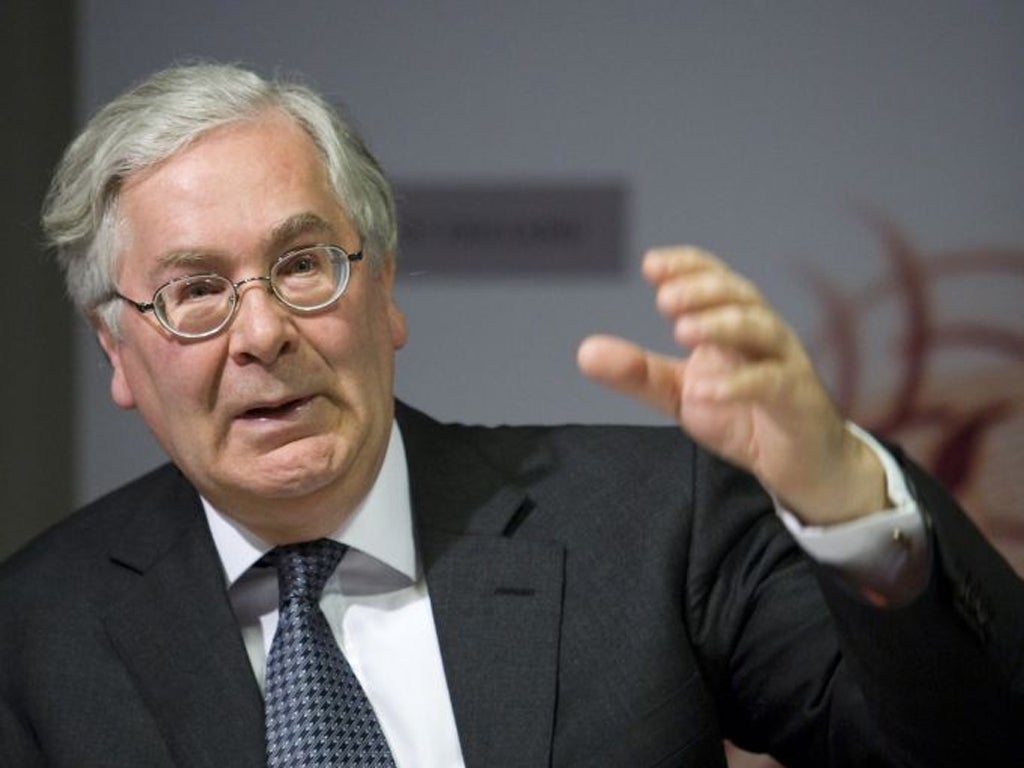Is the UK economy being dragged down by Europe?
Just how much damage is uncertainty over the fate of the single currency inflicting on the UK economy?

The Bank of England's rate-setting Monetary Policy Committee obeys Wittgenstein's proposition: "Whereof one cannot speak, thereof one must be silent." In its quarterly Inflation Report, published yesterday, the Bank said: "The MPC sees no meaningful way to quantify the size and likelihood of the most extreme possibilities associated with developments in the euro area."
Yet that does not mean the ongoing eurozone crisis has had no impact on the Bank's forecasts. The report also said: "The threat of these more extreme outcomes is likely to affect economic activity over the forecast period, for example through its effect on asset prices, including the exchange rate, bank funding costs and confidence."
So, assuming the threat of a Greek exit from the single currency remains a real prospect over the coming months and investor fears over the fate of Spain and Italy are not going to abate, what economic impact can we expect those market anxieties to have on the UK economy? And what are the economic channels through which that poison would flow?
One of the most striking features of recent weeks, in the wake of the inconclusive Greek election on 6 May, has been the strengthening of the pound against the euro, as investors have dumped the single currency and fled to the relative safety of the UK. Sterling is now at €1.2501, its highest level against the single currency in three and a half years. What is good news for British tourists, though, is bad news for the UK's exporters. A higher exchange rate makes their wares more expensive, and therefore less competitive, on world markets.
Exports specifically to the eurozone, which accounts for about 50 per cent of our foreign trade – are also inevitably going to suffer as that bloc struggles to grow. This is already happening. Victoria Redwood of Capital Economics said: "If you split it into exports to the eurozone periphery and the rest of the eurozone, you see exports to the periphery have been falling for about a year now. That's been offset by strong exports to the core, but we think we'll see exports to other eurozone countries slow too."
Stock markets have also taken a pummelling since the eurozone crisis came roaring back earlier this year. The FTSE 100 index has fallen by about 4.6 per cent since the end of March, when market jitters about Spain broke out again, wiping billions of pounds off the value off UK shares. The impact of falling asset prices on output is indirect. People feel poorer when they see the value of their pension funds falling and become less inclined to spend. More bad economic news.
The Bank also cites credit conditions as another eurozone drag on the UK. We are not in the single currency, but our largest banks have huge credit exposures to companies in Greece, Ireland, Portugal, Spain and Italy (£144bn, according to the Bank of England's most recent financial stability report). Our lenders have been experiencing funding stresses as a result of these exposures in recent years. Other banks and private-sector investors have been unwilling to lend to them for fear that they might not get their money back. The rate at which banks lend to each other for short periods – known as Libor – jumped last autumn after market concerns about Spain and Italy were aroused. They came down after the ECB's liquidity operations in December allowed banks to borrow cheaply for three years, but could easily rise again. This would have the knock-on effect of squeezing lending to UK households and businesses.
The Bank said yesterday that banks' funding costs were already feeding through into higher mortgage costs, with the average interest rate on a new tracker mortgage rising by 0.5 percentage points between August 2011 and April 2012.
Economists draw up their growth forecasts by looking at the major components of expenditure throughout the economy: consumer spending, business investment, net trade and government outlays. They then judge how these sectors are likely to grow, or shrink, over the coming years. Elevated eurozone financial stress hits all of these components. Except government spending, of course. And there the Chancellor insists he has no room for manoeuvre: the fiscal consolidation must continue as quickly as planned. With the MPC sitting on its hands too, deciding against engaging in more monetary stimulus at its last meeting, it is clear that the eurozone will be a major drag on UK output, even without a break-up.
Subscribe to Independent Premium to bookmark this article
Want to bookmark your favourite articles and stories to read or reference later? Start your Independent Premium subscription today.

Join our commenting forum
Join thought-provoking conversations, follow other Independent readers and see their replies